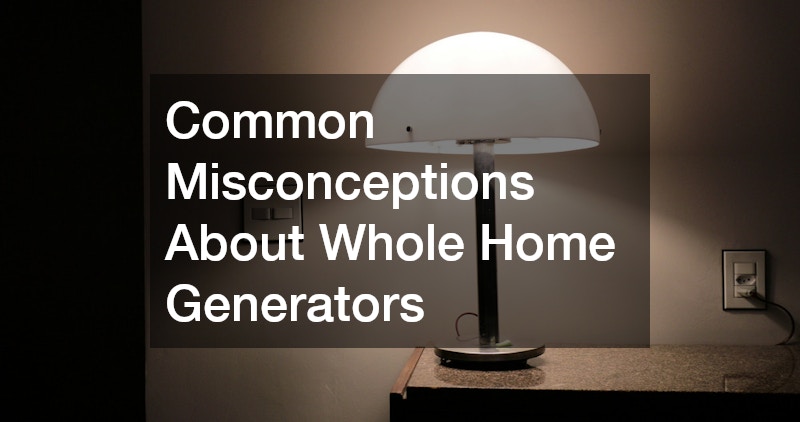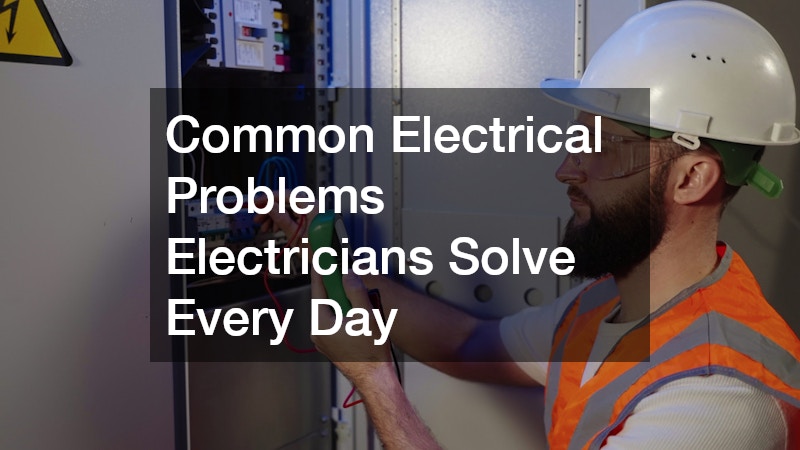This article aims to debunk common misconceptions regarding whole home generators, clarifying their function, benefits, and usage.
Whole Home Generators Are Only for Extreme Weather Conditions
Many homeowners operate under the belief that whole home generators are just for use during major storms or extreme weather events. This misconception overlooks the fact that power outages can happen at any time due to various reasons including equipment failures, maintenance, and accidents.
In fact, research shows that the majority of power interruptions are caused by factors unrelated to severe weather.
Whole home generators serve a vital role in maintaining energy supply throughout the year, not just during inclement weather. They provide crucial backup power during summer storms or high winds, but they also offer peace of mind in cases of unexpected outages at any time. Ensuring that households are prepared can save residents from significant inconvenience and potential hazard.
Moreover, modern homes are increasingly reliant on electricity for their daily activities. From medical equipment to home offices, the implications of a power outage can extend beyond discomfort, impacting safety and productivity. Therefore, the application of whole home generators is broad and truly essential for everyday preparedness.
Installation and Maintenance Are Too Complicated
Potential buyers often hesitate due to the belief that the installation and maintenance of whole home generators involve complex procedures. In reality, professional installers handle the setup and ensure compliance with local codes and regulations. The peace of mind gained from expert installation can alleviate many of the concerns associated with the perceived complexity.
Additionally, maintenance requirements are often less daunting than homeowners assume. With regular scheduled check-ups by a qualified technician, maintaining a whole home generator can be straightforward. Routine checks can help identify any issues before they become serious and expensive problems.
Advancements in technology have also simplified the operations and monitoring of generators. Many models come equipped with automated features that handle fuel management, maintenance reminders, and status updates, ensuring that owners can manage their systems efficiently without extensive technical knowledge.
Whole Home Generators Are Too Expensive
The perception that whole home generators are prohibitively expensive is a common misconception. While it is true that the upfront cost is significant, homeowners must weigh this investment against potential losses incurred during lengthy power outages. An untreated power outage can lead to spoiled food, loss of business, or disruptions that may far exceed the initial expenditure on a generator.
In addition, financing options and incentives from some states or utility providers can make investing in a generator more accessible financially. There are various models available to suit different budgets, and understanding the long-term savings is crucial in making sound financial decisions for power preparedness.
Furthermore, the longevity and functionality of whole home generators mean that they can provide years of reliable service. Over time, the cost of ownership decreases, especially when compared to the high stake losses incurred during power failures. Recognizing this value proposition is essential when evaluating whether a whole home generator is a wise choice.
They Are Too Noisy
The belief that whole home generators produce excessive noise is another misconception that can deter homeowners from considering them. While older models may have been noisy, today’s generators are designed with sound reduction in mind. Advances in technology have made it possible to manufacture quieter units without compromising their performance.
Not only are modern whole home generators engineered to be quieter, but they also feature soundproof enclosures that can further minimize noise pollution. Many neighborhoods have restrictions regarding noise levels during specific hours, and manufacturers are increasingly aware of these concerns and are working to create solutions.
Whole Home Generators Are Not Safe
Concerns about safety often accompany discussions about whole home generators. However, the latest models come equipped with numerous safety features designed to protect users and their properties. These features include automatic shut-off mechanisms, CO detection, and circuit protection, which significantly enhance the overall safety of using a generator.
In addition, following essential safety practices during operation can further mitigate risks. Regular inspections, using proper extension cords, and adhering to recommended usage guidelines can ensure both safe and efficient generator use. Education on best practices is vital for all users in ensuring that their systems operate correctly.
They Require Constant Fuel Supply
A prevalent myth is that whole home generators require a constant fuel supply, making them impractical for many homeowners. However, there are different types of whole home generators available that operate on various fuel sources such as propane, natural gas, or diesel. This versatility means that homeowners can choose a generator that aligns with their fuel availability and personal preferences.
Moreover, many modern generators are designed for efficiency and can run on limited fuel supply when necessary. For example, a dual-fuel generator can switch between propane and natural gas, allowing it to tap into municipal gas lines when available, thereby ensuring a steady power source during outages without the need for constant manual refueling.
Understanding the facts behind whole home generators can help homeowners make informed decisions about their power needs and preparedness. By debunking these common misconceptions, potential buyers can appreciate the significant benefits and reliability that these systems offer. Armored with knowledge, homeowners can ensure their safety, comfort, and convenience regardless of unforeseeable circumstances.




